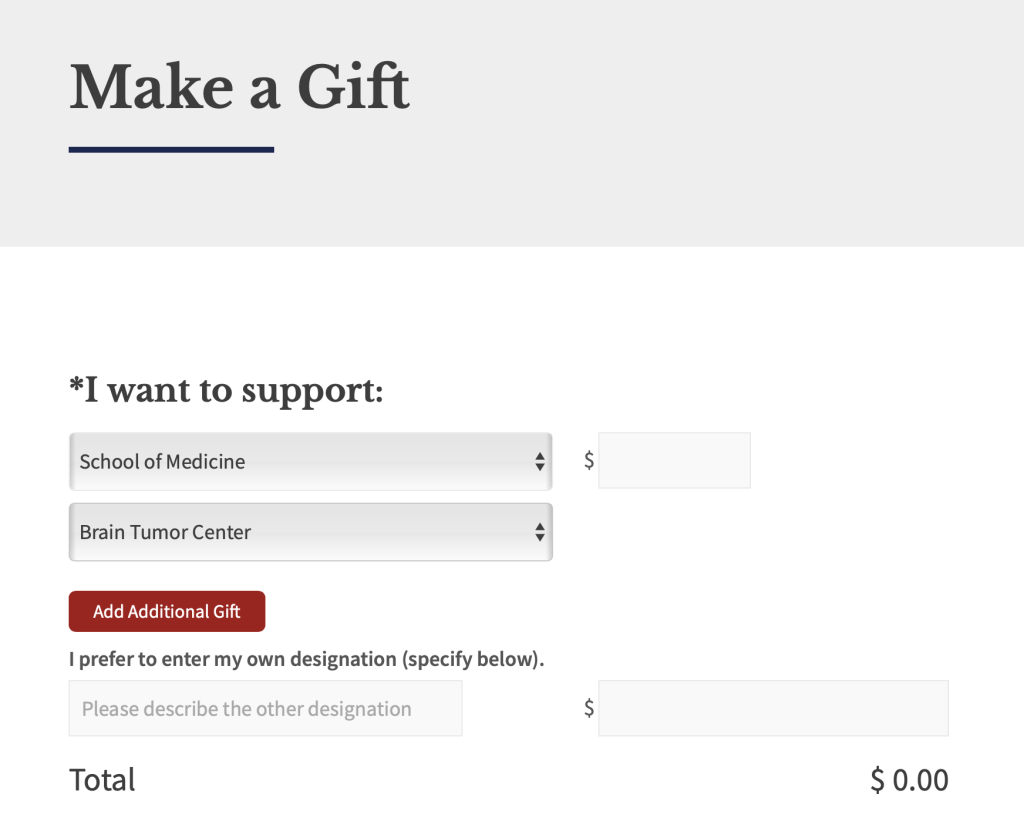There are more than 100 distinct types of primary brain tumors, each with its own spectrum of presentations, treatments, and outcomes. More than any other tumor of the body, brain tumors can have lasting physical, cognitive, and psychological impacts on a patient’s life.
Despite years of research, brain cancer survival rates have increased only incrementally in recent years, even while survival rates for many other cancers have been significantly improved.
Whether malignant or benign, a brain tumor is life-altering. Malignant tumors can spread and become deadly. And benign doesn’t mean harmless; benign tumors can cause serious problems such as paralysis, seizures and personality changes depending on which parts of the brain they affect. Brain tumors affect the fundamental attributes of people — their personality and behavior; their ability to move, speak, see, think — the essential characteristics of a human being. To understand and treat brain tumors we must attack them from different angles and tailor therapy to each person.
We are in the midst of an unprecedented time in the advancement of brain tumor research and treatment. There are approximately 1 million Americans living with brain tumors at this moment. Tumors are not a one-dimensional affliction; they are complex and dynamic, and their defeat will require aggressive, multidisciplinary approaches.
Established in 2021, The Brain Tumor Center is centered within the vibrant community of Washington University School of Medicine in St. Louis — a global leader in cancer biology, neuroscience, immunology, molecular imaging and high-speed comprehensive genomic and epigenetic research. Research laboratories from neurosurgery, neurology, medical and pediatric oncology, radiation oncology, radiology, immunology & pathology and genetics share a common goal of curing and eradicating tumors.
Through visionary philanthropists, we have been able to transform and accelerate our work. This has led to new cancer vaccine trials, preclinical pipelines for nanotechnology and laser therapies, and groundbreaking insights into immunology and brain function. With your help, we can continue on this trajectory of success in pushing this field forward.
Ways to give
Private support has allowed for unprecedented innovation and discovery and has been essential in advancing human health. Gifts can be directed to the Brain Tumor Center in the form of cash, securities, corporate matching gifts, real estate and personal property. Gifts of all kinds are tax deductible and may be designated for immediate use or as a long-term investment through an endowment.
If you would like more information about private support, please contact Laura Caveny at caveny@wustl.edu or 314-935-0482.
Types of gifts
Outright gifts

An outright gift designated to the Brain Tumor Center can be made online by highlighting “Brain Tumor Center” after selecting “Departments & Divisions” under the “School of Medicine.”
Outright gifts can also be made via check made out to Washington University with Brain Tumor Center (or the designation of your choice within the department) denoted in the memo line. Please mail your check to:
Washington University
Attention: Brain Tumor Center
MSC 1082-414-2555
1 Brookings Drive
St. Louis, MO 63130-9989
Planned gifts
A planned gift provides an opportunity for you to integrate a charitable gift into your overall financial, tax, and estate plan. Planned gifts can provide expendable support when disbursed, or they can be used to establish an endowed fund that will live in perpetuity with the institution. Planned giving provides strategies that enable you to support the Brain Tumor Center through:
- Wills and trusts
- Stocks/securities
- Real estate
- Charitable gift annuities/trusts
- Retirement plan assets
- Beneficiary designations
If you would like to designate the Brain Tumor Center as a beneficiary of a portion or all of your estate, the My Planned Gift Form provides us the information we need to properly document your wishes. We would be glad to talk with you about your objectives and ways to meet them.
Memorial gifts
We are honored when families request that memorial donations be directed to the Brain Tumor Center. Please contact Laura Caveny at caveny@wust.edu or 314-935-0482, and she will provide the information you need to make sure these incredibly meaningful gifts are designated appropriately.
Organize a community fundraising event
Join with your family members, friends, or colleagues to make a difference! Whether you have a personal connection to a particular disease area or program, want to honor or pay tribute to a loved one or just have fun with your family and friends, community fundraising events make an impact in raising awareness and supporting innovation in research, patient care programs, and education in the Department of Neurosurgery at Washington University School of Medicine. To organize a fundraising event or initiative to benefit Washington University School of Medicine, please complete our online form or contact Medical Advancement by emailing medicaladvancement@wustl.edu or calling 314-935-2993.